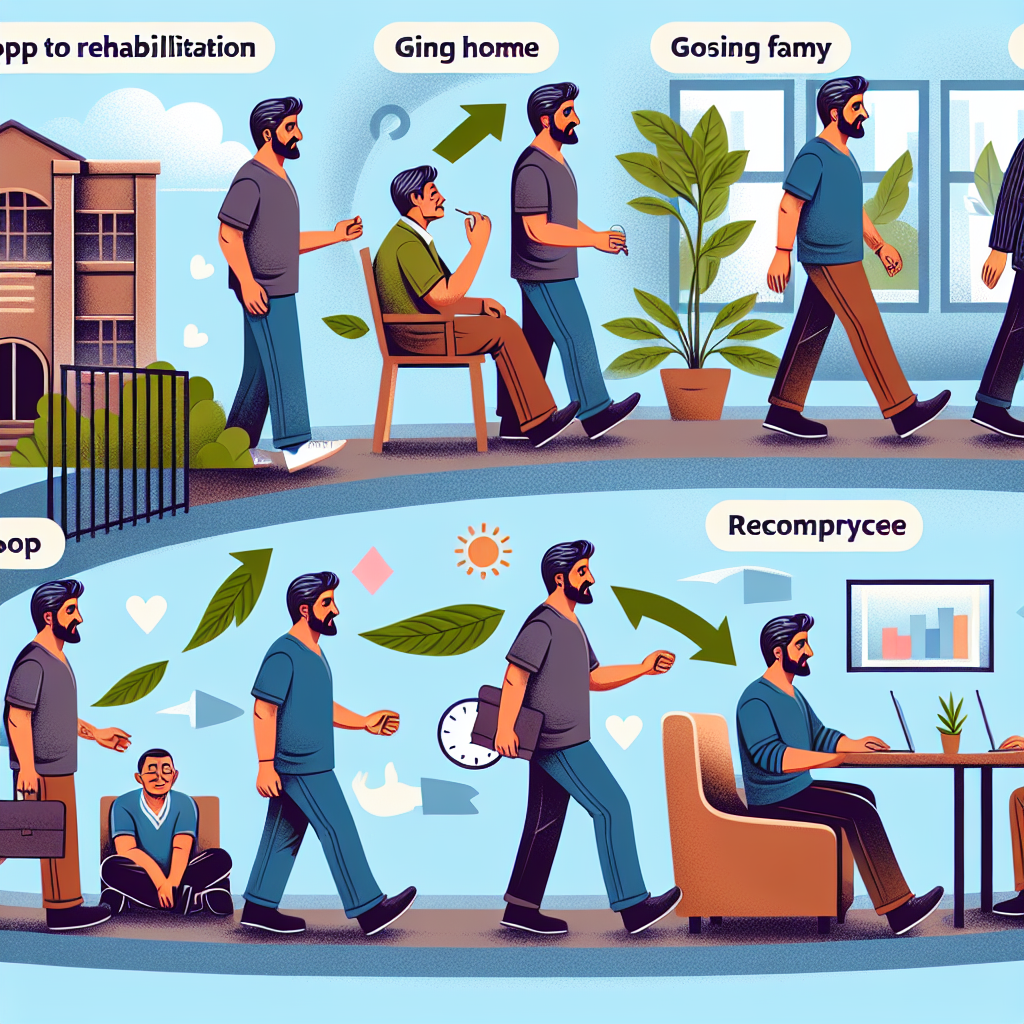-
Table of Contents
“From Darkness to Dawn: A Journey of Triumph Over Fentanyl Addiction”
Introduction

“Personal Reflections on Overcoming Fentanyl Addiction” is a poignant and deeply introspective narrative that delves into the harrowing journey of battling and ultimately triumphing over one of the most potent and dangerous opioids. This account sheds light on the physical, emotional, and psychological challenges faced during the struggle with fentanyl addiction. It explores the profound impact on personal relationships, mental health, and overall well-being, while also highlighting the resilience, support systems, and transformative moments that paved the way to recovery. Through candid reflections and heartfelt storytelling, this piece aims to inspire hope and provide insight into the complex process of overcoming addiction.
Journey to Sobriety: My Battle with Fentanyl Addiction
The journey to sobriety is often fraught with challenges, and my battle with fentanyl addiction was no exception. Reflecting on this tumultuous period of my life, I am reminded of the immense strength and resilience required to overcome such a powerful adversary. Fentanyl, a potent synthetic opioid, had a grip on my life that seemed unbreakable. However, through determination, support, and a commitment to change, I found a path to recovery that has transformed my life in ways I never thought possible.
My descent into addiction began innocuously enough. Like many others, I was prescribed painkillers following a surgery. The relief they provided was immediate and profound, but as the prescriptions ran out, I found myself seeking stronger alternatives. Fentanyl quickly became my drug of choice, offering an escape from both physical pain and the emotional turmoil that had begun to consume me. The euphoria it provided was fleeting, but the dependency it created was all-encompassing.
As my addiction deepened, the consequences became increasingly severe. Relationships with family and friends deteriorated, my career suffered, and my health declined. Despite these mounting issues, the thought of quitting seemed insurmountable. The fear of withdrawal symptoms and the psychological hold of the drug kept me trapped in a vicious cycle. It wasn’t until I hit rock bottom, facing the very real possibility of losing everything, that I realized I needed to make a change.
The first step towards recovery was admitting that I had a problem. This admission, though difficult, was crucial in seeking the help I so desperately needed. I enrolled in a rehabilitation program that specialized in opioid addiction, where I was surrounded by professionals who understood the complexities of my situation. The initial days were the hardest, as my body and mind grappled with the absence of fentanyl. However, the support from counselors and fellow patients provided a sense of community and understanding that was instrumental in my recovery.
Therapy sessions became a cornerstone of my journey to sobriety. Through both individual and group therapy, I began to unravel the underlying issues that had contributed to my addiction. Addressing these root causes was essential in preventing relapse and fostering long-term recovery. Cognitive-behavioral therapy, in particular, helped me develop coping strategies and a healthier mindset. Additionally, mindfulness practices such as meditation and yoga became integral parts of my daily routine, offering a sense of peace and grounding that had been absent for so long.
Support from loved ones also played a pivotal role in my recovery. Rebuilding trust and mending relationships required time and effort, but the unwavering support from my family and friends provided the motivation to keep pushing forward. Their belief in my ability to overcome addiction was a powerful reminder that I was not alone in this battle.
As I reflect on my journey to sobriety, I am filled with a profound sense of gratitude. Overcoming fentanyl addiction has not only saved my life but has also given me a renewed sense of purpose. Today, I am committed to helping others who are struggling with addiction, sharing my story in the hope that it might inspire and encourage them to seek help. The road to recovery is undoubtedly challenging, but it is also incredibly rewarding. With determination, support, and a willingness to change, it is possible to break free from the chains of addiction and reclaim one’s life.
Finding Strength: Personal Reflections on Overcoming Fentanyl Dependency
Overcoming fentanyl addiction is a journey fraught with challenges, but it is also a testament to the resilience of the human spirit. Reflecting on my own experience, I realize that the path to recovery is not a straight line but a series of steps, each requiring immense courage and determination. The first step in my journey was acknowledging the problem. It was not easy to admit that I had lost control, that a substance had taken over my life. However, this admission was crucial, as it marked the beginning of my commitment to change.
Transitioning from acknowledgment to action required a support system. I was fortunate to have family and friends who stood by me, offering unwavering support and encouragement. Their belief in my ability to overcome addiction provided the strength I needed to seek professional help. Entering a rehabilitation program was a daunting decision, but it was one of the most important steps I took. The structured environment, coupled with the expertise of healthcare professionals, gave me the tools to understand my addiction and develop strategies to combat it.
During my time in rehab, I learned the importance of addressing the underlying issues that contributed to my dependency. Therapy sessions were instrumental in helping me uncover the emotional and psychological factors that had led me to seek solace in fentanyl. Through these sessions, I gained insights into my behavior and learned healthier ways to cope with stress and anxiety. This period of self-discovery was both painful and enlightening, but it was essential for my recovery.
As I progressed through the program, I began to see glimpses of a life free from addiction. However, the journey did not end with my discharge from rehab. Reintegration into everyday life posed its own set of challenges. The temptation to relapse was ever-present, and it required constant vigilance and self-discipline to stay on track. I found solace in support groups, where I connected with others who were on similar journeys. Sharing our experiences and offering mutual support created a sense of community and accountability that was invaluable.
In addition to external support, I had to cultivate inner strength. Mindfulness and meditation became integral parts of my daily routine, helping me stay grounded and focused. Physical exercise also played a crucial role in my recovery, as it provided a healthy outlet for my energy and helped improve my overall well-being. Gradually, I began to rebuild my life, setting small, achievable goals that gave me a sense of purpose and accomplishment.
Reflecting on my journey, I realize that overcoming fentanyl addiction is not just about abstaining from the substance; it is about transforming one’s life. It involves a holistic approach that addresses the mind, body, and spirit. It requires a commitment to continuous self-improvement and a willingness to seek help when needed. Most importantly, it demands an unwavering belief in one’s ability to change.
Today, I am proud of how far I have come. My journey has taught me that recovery is possible, no matter how insurmountable the odds may seem. It has shown me the power of resilience and the importance of a strong support system. While the road to recovery is long and often arduous, it is a journey worth taking. Each step forward, no matter how small, is a victory. And with each victory, I find the strength to keep moving forward, one day at a time.
Life After Fentanyl: Rebuilding and Rediscovering Myself
Life after fentanyl addiction is a journey marked by profound transformation, resilience, and rediscovery. Emerging from the shadows of dependency, I found myself standing at the precipice of a new beginning, one that required immense courage and unwavering determination. The path to recovery was neither linear nor easy, but it was a testament to the human spirit’s capacity for renewal and growth.
In the early days of my recovery, the world seemed both daunting and unfamiliar. The grip of fentanyl had clouded my perception, numbing me to the vibrancy of life. As I began to navigate this new reality, I was confronted with the rawness of my emotions and the weight of my past choices. However, it was in these moments of vulnerability that I discovered the strength within me. Each day became an opportunity to reclaim my life, to rebuild the fragments of my identity that had been shattered by addiction.
One of the most significant aspects of my recovery was the support system that surrounded me. Friends, family, and healthcare professionals played an instrumental role in my journey. Their unwavering belief in my ability to overcome addiction provided a foundation upon which I could rebuild my life. Through therapy and support groups, I found a community of individuals who understood my struggles and shared in my triumphs. This sense of belonging was crucial in fostering a renewed sense of purpose and hope.
As I continued to distance myself from fentanyl, I began to rediscover passions and interests that had long been buried. Engaging in activities that brought me joy and fulfillment became a cornerstone of my recovery. Whether it was through creative outlets like painting and writing or physical pursuits such as hiking and yoga, these activities allowed me to reconnect with myself and the world around me. They served as a reminder that life, in all its complexity, held beauty and meaning beyond the confines of addiction.
Moreover, the process of rebuilding my life involved setting new goals and aspirations. I realized that recovery was not just about abstaining from substances but also about creating a future that I could be proud of. Pursuing education and career opportunities became a way to channel my energy and focus into something positive. Each milestone achieved, no matter how small, reinforced my belief in my ability to shape my destiny.
Throughout this journey, I also learned the importance of self-compassion and forgiveness. The road to recovery is often fraught with setbacks and challenges, but it is essential to approach these moments with kindness and understanding. Acknowledging my mistakes and learning from them allowed me to grow and move forward. It was through this process of self-reflection that I came to appreciate the resilience and strength that had carried me through the darkest times.
In conclusion, life after fentanyl addiction is a testament to the power of the human spirit to overcome adversity and embrace change. It is a journey of rebuilding and rediscovering oneself, marked by moments of struggle and triumph. Through the support of loved ones, the pursuit of passions, and the setting of new goals, I have been able to create a life that is rich with purpose and meaning. My story is a reminder that recovery is possible and that, with determination and support, it is possible to reclaim one’s life from the grips of addiction.
Lessons Learned: Insights from My Fentanyl Recovery Journey
Overcoming fentanyl addiction has been the most challenging and transformative experience of my life. Reflecting on this journey, I have gained invaluable insights that I hope can inspire and guide others facing similar struggles. The path to recovery is fraught with obstacles, but it is also filled with moments of profound self-discovery and growth.
Initially, the grip of fentanyl was all-consuming. The drug’s powerful hold on my mind and body made it seem impossible to break free. However, the first lesson I learned was the importance of acknowledging the problem. Denial only deepened my dependency, and it wasn’t until I admitted to myself and others that I needed help that I could begin to take the necessary steps toward recovery. This admission was not a sign of weakness but a crucial act of courage and honesty.
Once I accepted my addiction, the next step was seeking support. I realized that overcoming fentanyl addiction was not something I could do alone. The support of family, friends, and professionals was indispensable. Their encouragement and understanding provided a foundation upon which I could build my recovery. In particular, connecting with others who had faced similar battles was incredibly empowering. Their stories of struggle and triumph gave me hope and a sense of community.
Another critical lesson was the importance of professional treatment. Enrolling in a comprehensive rehabilitation program provided me with the tools and strategies needed to combat my addiction. The combination of medical intervention, therapy, and counseling was essential in addressing both the physical and psychological aspects of my dependency. Through therapy, I learned to identify and cope with the underlying issues that had contributed to my addiction, such as stress, trauma, and emotional pain.
In addition to professional help, I discovered the significance of self-care and healthy coping mechanisms. During my addiction, I had neglected my physical and mental well-being. Recovery taught me the value of nurturing my body and mind through regular exercise, a balanced diet, and mindfulness practices like meditation and yoga. These activities not only helped me regain my strength but also provided a sense of peace and stability.
Moreover, setting realistic goals and celebrating small victories played a crucial role in my recovery journey. The road to overcoming fentanyl addiction is long and often arduous, but breaking it down into manageable steps made it more attainable. Each milestone, no matter how small, was a testament to my progress and a source of motivation to keep moving forward.
One of the most profound insights I gained was the importance of forgiveness and self-compassion. Addiction often comes with a heavy burden of guilt and shame. Learning to forgive myself for past mistakes and treating myself with kindness was essential in healing and rebuilding my self-esteem. This shift in mindset allowed me to focus on my recovery rather than being weighed down by regret.
Finally, I learned that recovery is an ongoing process. It requires continuous effort and vigilance. There will be setbacks and moments of doubt, but each challenge is an opportunity to grow stronger and more resilient. Embracing this journey with an open heart and a determined spirit has been the key to my sustained recovery.
In conclusion, overcoming fentanyl addiction has taught me invaluable lessons about courage, support, self-care, and resilience. My journey has been a testament to the power of determination and the human spirit’s capacity for transformation. By sharing my experiences, I hope to inspire others to believe in their ability to overcome addiction and embrace the possibility of a brighter, healthier future.
Q&A
1. **Question:** What are some common triggers that can lead to fentanyl addiction?
**Answer:** Common triggers include chronic pain, previous history of substance abuse, mental health disorders, and exposure to environments where drug use is prevalent.
2. **Question:** What are effective strategies for overcoming fentanyl addiction?
**Answer:** Effective strategies include seeking professional medical treatment, participating in therapy and counseling, joining support groups, and developing a strong support network of family and friends.
3. **Question:** How can therapy help in overcoming fentanyl addiction?
**Answer:** Therapy can help by addressing underlying psychological issues, teaching coping mechanisms, providing emotional support, and helping to develop a relapse prevention plan.
4. **Question:** What role does a support network play in overcoming fentanyl addiction?
**Answer:** A support network provides emotional encouragement, accountability, practical assistance, and helps reduce feelings of isolation during the recovery process.
Conclusion
Overcoming fentanyl addiction is a profound and challenging journey that requires immense personal strength, resilience, and support. It involves confronting deep-seated issues, enduring physical and emotional pain, and making significant lifestyle changes. Success in this endeavor often hinges on a combination of medical treatment, therapy, and a strong support network. Reflecting on this journey highlights the importance of perseverance, the value of seeking help, and the transformative power of recovery. Ultimately, overcoming fentanyl addiction is not just about breaking free from a substance, but about reclaiming one’s life and rediscovering a sense of purpose and hope.



